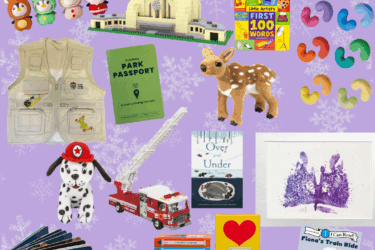A kid shows up at the birthday party with a food allergy — sounds like the beginning of a knock-knock joke, right? In all seriousness, this really can happen. It happened to me, and even worse, I wasn’t prepared for it. What would this dairy-free kiddo eat when I had a smorgasbord of pizza, cheese, cake and ice cream? Luckily, the kid came prepared and knew exactly what to do. He had his dairy-free treat tucked away in our freezer for later. I watched as he patiently picked through the snacks he was allowed to munch on. But what if he wasn’t self-sufficient? What if neither of us knew what to do? This is where communication with the parents of the food-allergy kid and the party host or hostess comes into play.
Handling Food Allergies
According to Sandy Durrani, M.D., associate professor, UC Department of Pediatrics at Cincinnati Children’s Liberty Campus, it is very important for the party host to engage with the parent of a child with a food allergy (FA) on those very questions. Talk with the parents ahead to review the planned menu and activities you will be planning throughout the day.
“The parent should guide the host on what steps to take to ensure everyone’s safety,” Durrani explains. “For example, if cake is being served and the child has a milk allergy, it is important to discuss with the parent how they want to handle things if the cake contains milk.”
Some of these options include the FA kid avoiding the cake and bringing along a doctor approved treat. That way he can still get in on the fun. The FA parent can also bring an allergy-friendly cake.
For example, or you both can work together on having menu items that work for the FA kid.
“The parent can guide based on multiple factors (child’s developmental age, food/snacks being served, etc.) on how to handle food,” he says.
Food isn’t always the only allergen to look out for. Some arts and crafts, such as Play-Doh, contain wheat which can cause allergic reactions depending on the kid’s allergies. Communicate with parents beforehand and ask if any of the kids have allergies, and plan from there.
Common Food Allergies
The most common food allergies in kids to be aware of are milk, peanut, egg, tree nut, wheat, soy, fish/shellfish and sesame allergies. If a kid had a mild reaction once, don’t let your guard down — it can happen again and possibly worse, according to Durrani.
“Each reaction can vary in severity, but life-threatening reactions can occur to anyone with a food allergy even if they have not had one before,” he says. “A common misconception is that just because one has had a mild reaction previously, the next reaction will be mild.”
The severity of the reaction depends on dose, method of preparation of the food, cofactors such as exercise, illness and more, Durrani explains. Being prepared for the worst is better than assuming you are in the clear.
Plan of Action
So how can you be prepared? If you have kids with food allergies at the party, ask around and see if any parents have what is called, an anaphylaxis action plan (epinephrine autoinjectors, at least two is generally recommended) available and see if someone at the party is trained to handle reactions, suggests Durrani.
“While everyone does their best to avoid accidents, accidents and reactions still do occur,” he says.
If a kid has a mild reaction, it can be treated with antihistamines. The person at the party who is trained to recognize and treat allergic reactions can take action and use the anaphylaxis.
“Epinephrine should be given, and it is very important that the child be placed in a lying position with legs up or on their sides if having gastrointestinal symptoms,” says Durrani. “The rationale for this is, we do not want kids having a reaction to be sitting up or standing if their blood pressure is an issue, plus running around could worsen the reaction.”
Having someone at the party who is trained to handle this sort of reaction isn’t always realistic. So in general, call an EMS especially if the reactions are severe.
Learn about helping kids advocate for themselves if they have a food allergy here.





